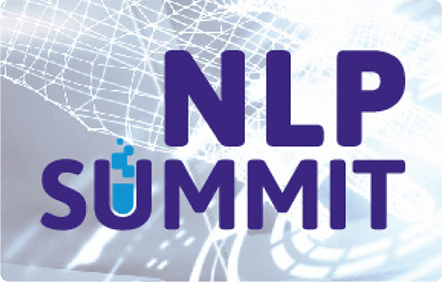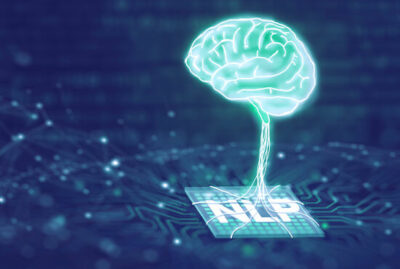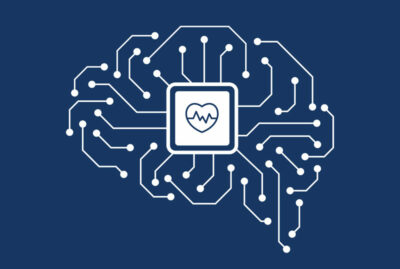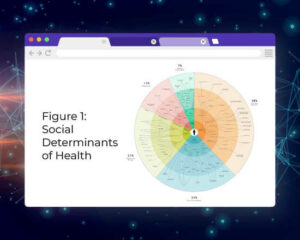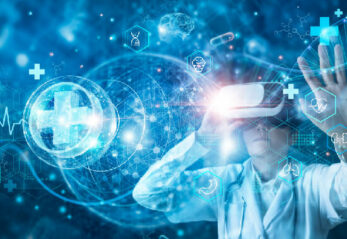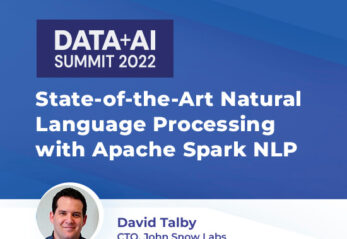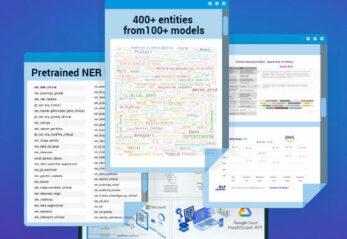The adoption of Natural Language Processing (NLP) in healthcare can be transformational as it facilitates the interpretation of large amounts of data in order to gain valuable insights and make more accurate decisions that lead to better patient care.
We sat down with David Talby, CTO at John Snow Labs, to discuss the importance of NLP in healthcare and other industries, some state-of-the-art NLP use cases in healthcare as well as challenges when building NLP models.
Where do you see the most potential of NLP for the healthcare industry?
David Talby: I think we are just scratching the surface. So right now in healthcare, a lot of things are still done manually – even super simple things like counting how many people had COVID, for example. If you’re looking at people who have been in a hospital, or looking for people who go undiagnosed or underdiagnosed. The same problem applies to diabetes, kidney diseases or depression. Many people don’t know that they have it until it’s too late.
So with all of these conditions, you need to read the notes of the discussion between the doctors and nurses to understand patients at risk and their needs. Using medical NLP, clinical protocols can be automated and additional insights gained.
Among others, these insights help to accelerate the process of matching patients with clinical trials. We know from COVID that every additional week or month counts when finding a cure. The same applies when finding cures for illnesses like cancer, alzeimers, COPD and chronic pain – many people are just waiting for clinical trials. NLP is increasingly used to identify candidate patients and handle regulatory documentation in order to speed up this process.
There are many more NLP clinical applications that have become possible in the past five years. It is like a candy store: you have to decide what to go after first.
John Snow Labs will be hosting the Virtual NLP Summit from October 5-7, featuring over 50 speakers working on NLP applications in healthcare, finance and other industries. What can attendees expect from the event?
David Talby: The NLP Summit is a community event bringing together speakers from research and the industry, such as the CEO of Hugging Face, the lead maintainer of Stanford NLP, and practitioners and researchers from NASA, Amazon, BlackRock, Novartis, Microsoft Research, and other leading companies. The goal is to give practitioners an overview of the entire ecosystem to understand what is going on.
Some of the really interesting things you’ll hear at the event are applications of large language models. There are two speakers who have been working on open source alternatives to GPT-3, publishing even bigger models and making them available to the community. We’ll also hear about Adaptive Testing of NLP models, NLP with Transfer Learning, and some exciting use cases of NLP in finance & insurance.
One of the challenges with NLP is not just measuring accuracy via an F1 score, but also looking at things like biases, inclusiveness, and “black holes” that the models miss. Therefore, several talks at the event focus on testing and understanding how NLP models perform on Responsible AI questions. Other than that, the core of the summit is looking at real world case studies. There’s several really good academic NLP conferences but not so many applied ones.
The heart of the NLP Summit are applied NLP use cases – lessons learned on how to successfully implement real-world NLP systems. Speakers will be answering questions such as: “What systems make it to production?”, “What will work and what not?”, and “What do we need to do to make it work?”
You have a big network and know many people working in applied NLP. What’s a challenge you all share when it comes to using NLP algorithms to solve real world problems?
David Talby: One thing we all have in common is that NLP is a nascent technology. We are at a point where we know from research that many problems are now solvable for the first time in history. De-identification is a great example. Anonymizing clinical labels and medical documents has always been something that you had to do manually in practice. In the past two years, accuracy of NLP models has improved to the point that we’re now able to automate this process. We know how to build the model and are now looking into ways to scale it. So the challenge now is productization and scale: How to implement the models in thousands of companies?
It is an amazing time if you like this kind of “wild west” environment. Everything is just beginning. One of the challenges we try to explain to customers is that it’s not “done” yet. We’re discovering things as we go, and that’s the case across all industries.
Learn from NLP leaders in different industries at the Applied NLP Summit on October 5-7, 2021. The NLP Summit is a two week online event of immersive, industry-focused content. Week one will include over 50 unique sessions, with a special track on NLP in healthcare. Week two will feature beginner to advanced training workshops with certifications.
